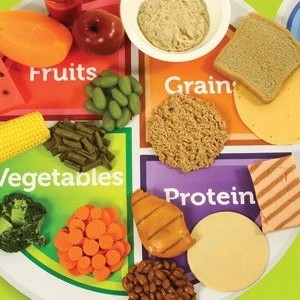
Posted: Wednesday, June 15, 2016 8:00 am
I was at the grocery store the other day when the cashier asked me if I wanted to apply for a senior citizen discount. I actually looked behind her to see if she was talking to someone else. Yes, I am in denial!! When I realized that she was indeed talking to me, I asked how old did I have to be to receive the discount. After she told me, I realized I was indeed eligible for their little discount. “Sign me up” I commented, figured I might as well take advantage of a senior perk.
Well, everything else changes as we age, so it would make perfect sense to me that our nutrient and caloric needs change as well. As we age, we can stay the same weight but lose muscle mass which means we need fewer calories than we once did. At the same time, nutrient needs increase and nutrition plays a critical role in keeping us well as we age. So seniors we need to learn to make smart food choices. The amount of nutrition per calorie should be high. No empty calories for seniors. An empty calorie is a calorie that has zero nutritional value. They add to total calories, but provide no vitamins or minerals. Sodas, cakes, cookies, packaged processed foods, sugary sports drinks, candy, and pastries, are just a few examples of empty calories.
The Human Nutrition Research Center on Aging (HNRCA) recently released an updated MyPlate for Older Adults, The graphic provides a user friendly glance of what constitutes a healthy diet for seniors. According to an article, “Smart Food Choices for Seniors,” (published on the Tufts Now websitehttps://tufts.edu) on May 18, representatives from the HNRCA and the AARP Foundation will meet with policymakers and advocates for older adults in Washington, D.C., to present the graphic and discuss the nutritional needs of seniors.
The body may have trouble absorbing certain nutrients as we age as well as other changes, so every bite is extremely important. Let’s look at a few changes:
» Vitamin B12, for example may be harder to absorb and it is crucial for nerve function, energy production and mental clarity. Eating foods high in B12 is essential.
» Magnesium may not be absorbed as well. Magnesium helps keep our bones healthy, helps with blood sugar regulation, blood pressure regulation, energy transport and muscle relaxation.
» The aging adult may need more Vitamin D to maintain a strong immune system and decrease inflammation in the body. Due to decreased sunlight exposure and poor absorption, many seniors have low levels of Vitamin D
» Sense of taste changes as we age, so instead of salting your food to death, use herbs and spices to enhance the taste of foods.
» Sense of thirst may be compromised, as well as side effects of certain medications causing dehydration.
The good news is that the new MyPlate for Older Adults addresses all of the above issues with practical advice and tips that are particularly suited to the needs of seniors. Myplate for older adults is based on the 2015-2020 Dietary Guidelines for all adult Americans with added valuable tips for seniors.
For more information or to print out the graph to www.choosemyplate.gov/older-adults
See you in the gym!
Linda is a corporate wellness specialist, health coach, and wellness consultant. Contact her at lstollings@fitprescriptions.com.






